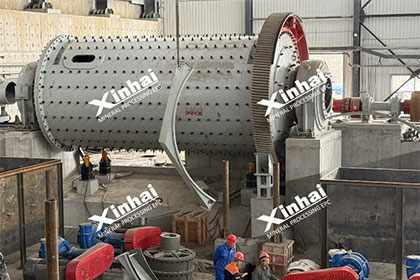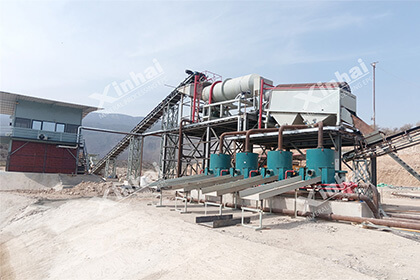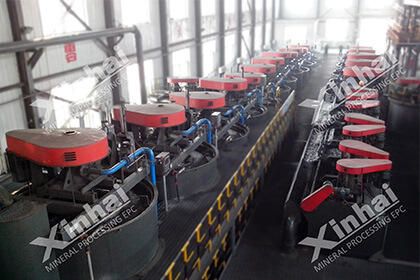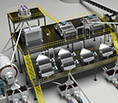Alluvial Gold Mining vs Hard Rock Mining: Key Differences
 Laura
Laura
 Sep 08, 2025
Sep 08, 2025
 373
373
If you want to know more details about equipment, solutions, etc, please click the button below for free consultation, or leave your requirements!
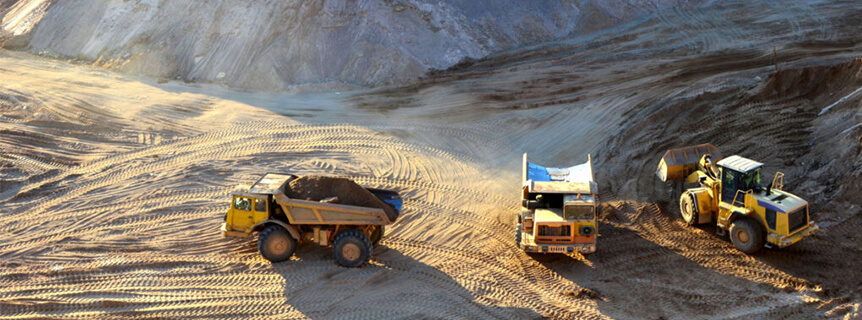
( alluvial gold mine )
Gold mining has been a vital part of human history for centuries, and while the goal remains the same — to extract valuable gold from the earth — the methods used have evolved. Alluvial gold mining and hard rock mining are two of the most common techniques used to recover gold, but they are very different in terms of approach, equipment, and location.
In this article, we'll dive deep into the key differences between alluvial gold mining and hard rock mining, so you can understand how each method works and which is best suited for different types of gold deposits.
01 What Is Alluvial Gold Mining?
BackAlluvial gold mining refers to the process of recovering gold from placer deposits, which are loose materials such as sand, gravel, and soil, typically found in riverbeds, floodplains, or ancient riverbeds. These deposits are usually the result of gold being transported and concentrated by natural forces such as water.
How It Works
In alluvial gold mining, gold particles are separated from other materials (like gravel and sand) using gravity-based techniques. Methods include panning, sluicing, dredging, and hydraulic mining. Gold pans and sluice boxes are typically used by small-scale miners, while larger-scale operations may use bucket-line dredges or trommels.
02 What Is Hard Rock Mining?
BackHard rock mining involves extracting gold from solid rock, typically located in veins or ore bodies deep within the earth. These gold deposits are trapped within minerals like quartz or other hard rock, making the extraction process more challenging and resource-intensive.
How It Works
Hard rock mining requires drilling, blasting, and crushing the rock to expose the gold. The gold is then extracted through a series of processes like cyanide leaching or gravity separation. It’s a highly mechanized process, often requiring heavy machinery like excavators, crushers, and mills to break the rock down and recover the gold.
03 Key Differences Between Alluvial Gold Mining and Hard Rock Mining
BackLet’s break down the key differences between alluvial gold mining and hard rock mining based on various factors.
1. Location of Gold Deposits
Alluvial Gold: Found in placer deposits, typically in riverbeds, lakes, or old river channels.
Hard Rock Gold: Found in veins or ore bodies buried deep within mountains or rock formations.
2. Mining Techniques
Alluvial Mining: Primarily uses gravity-based techniques (e.g., panning, sluicing, and dredging).
Hard Rock Mining: Involves drilling, blasting, and crushing rock to extract gold.
3. Equipment Used
Alluvial Mining: Simple tools like gold pans, sluice boxes, and dredges; large-scale operations may use trommels and dredgers.
Hard Rock Mining: Heavy machinery such as excavators, crushers, grinders, and ball mills.
4. Scale of Operations
Alluvial Mining: Often used in small-scale or artisanal mining operations. However, it can also be applied on a larger scale with industrial equipment.
Hard Rock Mining: Primarily used for large-scale commercial mining, requiring substantial investment in machinery, labor, and infrastructure.
5. Gold Recovery Methods
Alluvial Mining: Simple gravity methods like panning or sluicing, which don’t require chemical agents. In some cases, mercury or cyanide may be used for higher recovery rates.
Hard Rock Mining: Uses more advanced techniques such as cyanide leaching, flotation, or gravity separation to recover gold from crushed rock.
6. Environmental Impact
Alluvial Mining: Can lead to soil erosion, water contamination, and destruction of ecosystems if not managed properly. Hydraulic mining can result in significant water and land disturbance.
Hard Rock Mining: Has a higher potential for land degradation, acid mine drainage, and toxic waste due to the use of chemicals like cyanide and mercury. However, the overall environmental footprint is more contained in terms of surface disruption compared to alluvial mining.
7. Labor Requirements
Alluvial Mining: Often requires fewer workers, especially in small-scale operations, as the processes are less mechanized.
Hard Rock Mining: Requires skilled labor for operating heavy machinery, managing complex mining operations, and handling the extraction and processing of ore.
04 Pros and Cons of Alluvial Gold Mining vs Hard Rock Mining
Back1. Alluvial Gold Mining
Pros:
Lower initial investment costs
Easier to scale up or down
Suitable for small-scale or artisanal mining
Environmentally less invasive if managed well
Cons:
Limited to areas with alluvial gold deposits
Lower gold recovery rates in some cases
Environmental impact if not controlled (especially from mercury or hydraulic mining)
2. Hard Rock Mining
Pros:
Higher-grade gold recovery from rock deposits
Suitable for large-scale operations and deeper gold deposits
Can yield large quantities of gold over time
Cons:
High costs for machinery, infrastructure, and labor
More environmentally invasive with potential for significant ecological damage
Requires advanced knowledge and technology for efficient operation
05 Frequently Asked Questions (FAQs)
Back❓ Which method is more profitable?
Hard rock mining can yield larger quantities of gold, but it requires significant investment and infrastructure. Alluvial mining can be more profitable for small-scale miners or those working with higher gold concentrations in riverbeds.
❓ Can alluvial mining be used for deep gold deposits?
No, alluvial mining is limited to surface-level deposits and placer gold. For deeper gold veins, hard rock mining is necessary.
❓ What environmental impacts do these mining methods have?
Both methods can lead to environmental degradation, but alluvial mining often affects waterways and ecosystems, while hard rock mining can cause acid mine drainage and other long-term land damage.
06 Conclusion
BackBoth alluvial gold mining and hard rock mining have their advantages and disadvantages, depending on the deposit type, scale of operation, and environmental considerations. Alluvial gold mining is best suited for areas with placer deposits and is ideal for smaller, more flexible operations, while hard rock mining is necessary for extracting gold from deep, complex ore bodies and is more suited for large-scale commercial mining. Choosing between these two methods depends on the location of the gold deposit, the scale of the operation, and the available resources.
Feel free to contact us and learn more about alluvial gold mining and hard rock mining!
 +86 182 3440 3483
+86 182 3440 3483 yanzhang19990421@gmail.com
yanzhang19990421@gmail.com



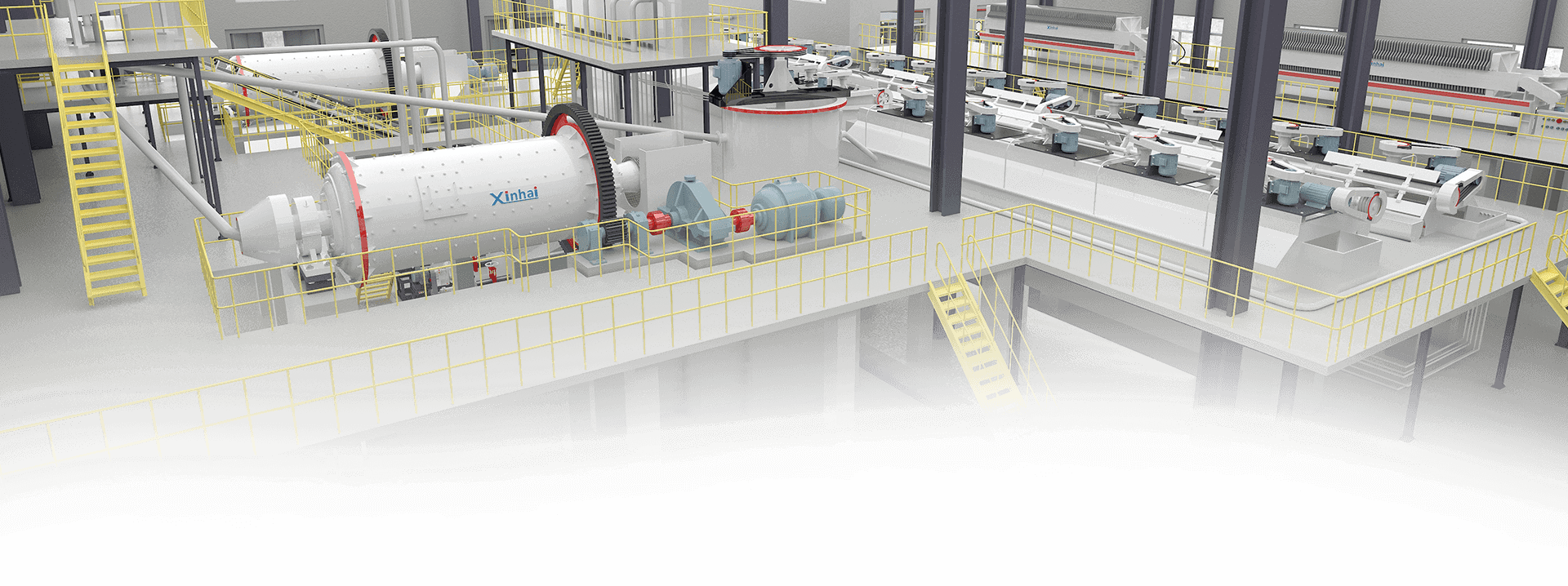
 Message
Message Chat Now
Chat Now


